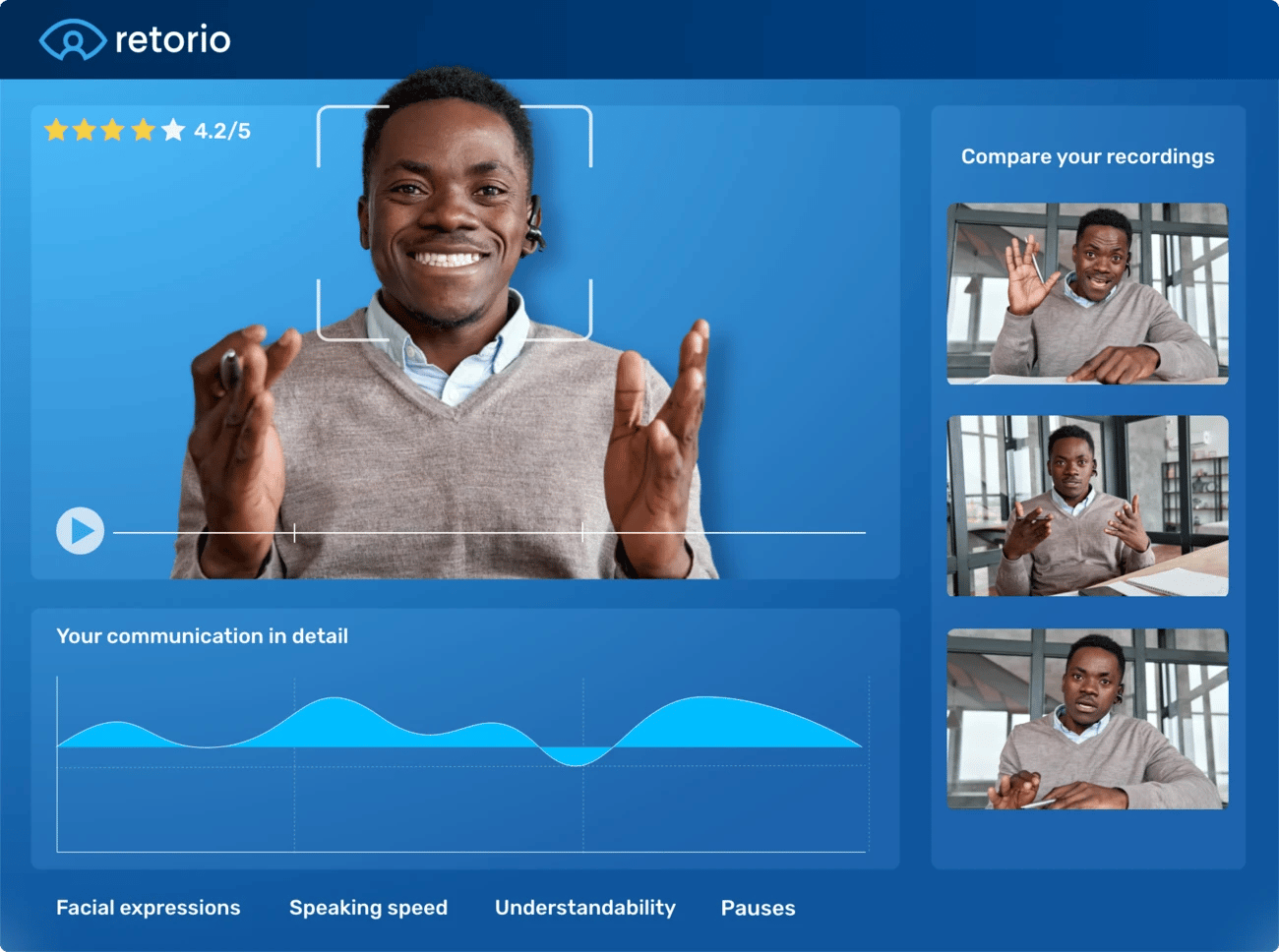According to a survey by Deloitte, 72% of organizations are already using AI to automate HR processes such as recruitment and onboarding.
Artificial Intelligence (AI) has revolutionized the way we manage people in the workplace, providing an unparalleled level of efficiency and effectiveness that was previously unheard of.
From automating tedious HR processes like recruitment and onboarding to personalizing employee experiences, artificial intelligence is transforming how organizations use data to make better decisions about their most valuable asset - their people. In this blog post, we'll explore what artificial intelligence is, how it works, its role in human resources, how recruiters can benefit from using AI-driven tools and technologies, as well as what lies ahead for the future of AI in human resources.
What's in this post?
- What is artificial intelligence?
- What is Human Resources?
- What is the role of artificial intelligence in human resources?
- How is artificial intelligence used in human resources?
- What are the benefits of using artificial intelligence in human resources?
- Which companies are using artificial intelligence for human resources?
- What is the future of artificial intelligence in human resources?
What is Artificial Intelligence?
In its most basic form, artificial intelligence is a field that combines computer science and large datasets to solve problems. It also includes the subfields of machine learning and deep learning, which enable machines to mimic human cognitive functions such as problem-solving, decision-making, and pattern recognition. AI can also be used for predictive analysis and data mining, allowing businesses to make more informed decisions based on past trends. By leveraging the power of AI technology, companies can automate tedious tasks that would otherwise require manual input from humans. As a result, businesses can increase efficiency while reducing costs associated with labor.
How does Artificial Intelligence work?
Artificial intelligence works by gathering data based on past experiences and identifying patterns to make predictions about future outcomes. Instead of relying on human intuition, Artificial intelligence utilizes algorithms to identify trends and make decisions that are more accurate than manual processes. This allows organizations to make better business decisions faster, while also providing a more efficient way of automating mundane tasks such as recruitment and onboarding for human resources.
As previously mentioned, artificial intelligence is a field of study that encompasses various ideas, methodologies, and technologies, as well as the primary subfields listed below:
- Machine learning automates the creation of analytical models. It employs approaches from neural networks, statistics, operations research, and physics to uncover hidden insights in data without being explicitly programmed as to where to look or what conclusions to draw
- Deep learning employs massive neural networks with several layers of processing units to learn complicated patterns in vast volumes of data, making use of increases in computer power and improved training procedures. Image and voice recognition are two common uses.
- Natural language processing (NLP) refers to computers' capacity to analyze, comprehend, and produce human language, including speech. Natural language interaction is the next level of NLP, which allows humans to interface with computers to execute tasks using regular, everyday language.
What is Human Resources?
Human Resources (HR) is a branch of business that helps companies manage their employees. It includes things like recruiting new people for jobs, helping existing workers with issues or problems, and making sure everyone is doing their job well. HR also makes sure that the rules and laws are followed so everyone stays safe and happy at work.
Oftentimes, HR processes can be incredibly draining and time-consuming since recruiters oftentimes need to manually sift through a large pool of applications to find the best candidates. This may involve extensive research into each candidate's background and skillset without being able to quickly identify patterns or connections between them.
What is the role of Artificial Intelligence in human resources?
Over the past few years, artificial intelligence has become a popular tool for recruiters to use in human resources. For example, recruiters are now able to use AI-powered chatbots to engage with job applicants, allowing them to provide more personalized support and quickly answer common questions. In addition, artificial intelligence algorithms allow recruiters to analyze thousands of resumes in seconds, which drastically reduces the amount of time spent manually reviewing applications. By utilizing AI technology, recruiters are able to quickly identify qualified candidates and make better hiring decisions.
How is artificial intelligence used in human resources?
Artificial intelligence has become a saving grace in the world of human resources. As many recruiters would know, talent acquisition and onboarding are crucial aspects of HR management, therefore it is in your best interest to make sure that candidates and employees enjoy being part of your company and what your company stands for right from the very beginning.
Therefore, HR staff may use AI to anticipate the top prospects for a position and create connections with those people to convert them into employees. By notifying the correct individuals with the proper skill set for the available jobs, AI can assist scale and handle a major chunk of predictive labor.
Furthermore, HR data may be utilized to accurately anticipate a candidate's chance of accepting a job offer and subsequent performance results, as well as estimate their projected tenure.
However, artificial intelligence can be used in many other ways to support human resources management:
- Artificial intelligence for employee engagement: Employee engagement and training are two more critical components of human resource management that may be improved using artificial intelligence. AI-powered data analytics or predictive analytics may be used by organizations to create customized training programs that correspond with various employees' learning patterns and demands. This improves the connection between training programs and employee engagement.
- Artificial intelligence for better Learning and Development (L&D): Upgrading one's abilities is a crucial method to keep ahead of the competition in any industry.
AI tools may be used to design training and development programs that are tailored to each employee. Consider providing several levels of training modules to different employees based on their skill sets, job levels, and needs. - Artificial intelligence for onboarding: AI can assist HR staff in designing and automating their onboarding process to make it more structured, efficient, and personalized. Onboarding a new employee into the company is an important step to make your employees feel engaged and motivated to work from day one.
- Artificial intelligence for rewards and recognition: AI can help with rewards and recognition by helping HR to identify patterns in employee performance data. This helps companies to make decisions about who deserves promotions, more recognition for their hard work, bonuses, or other rewards for their contribution to the company's success.
- Artificial intelligence to remove biases from job postings: Every hiring funnel's purpose is to have a consistent flow of candidates. Therefore, AI can assist recruiters in reducing or eliminating the negative components of job listings that actively, and sometimes passively, hinder well-qualified applicants from submitting applications by deleting things like business jargon and clichés, gender-biased wording, and needless descriptions. AI-powered tools assist in locating these features in the copy and recommending improvements that would improve the entire posting. They use real-world data from hundreds of job advertisements to evaluate what's working in the market in order to attract more quality candidates and minimize time-to-fill.
- Artificial intelligence to conduct quality video interviews: Implementing AI into your video interviews allows recruiters to receive a more in-depth and insightful overview of who the candidates are without having to conduct a face-to-face interview that can be oftentimes time-consuming. With an AI video interview, the AI accurately screens the facial expressions and behavior of each candidate's response to pre-selected questions, and creates an analysis depicting how well each candidate matches the company's target profile. This process is completed within a few minutes and is bias-free.
What are the benefits of using Artificial Intelligence in human resources?
| Automation of tedious tasks such as pre-screening resumes and onboarding | Artificial intelligence can automate the process of pre-screening CVs, reducing the time and cost associated with this task significantly. It also helps make onboarding smoother by streamlining processes for improved efficiency and productivity. |
| Reduced costs | According to McKinsey's Global AI Survey, 27 percent of HR respondents indicated their AI deployment resulted in a cost reduction of less than 10%, while 23 percent reported an average revenue rise of 6% to 10%. Furthermore, the majority of executives whose organizations have used artificial intelligence that it has increased revenue in the business sectors where it is employed, and 44% report that it has decreased expenses. |
| Better decision-making | By leveraging the power of AI technology to analyze employee performance data, companies are able to make better business decisions faster while identifying trends in order to ensure successful outcomes across all areas including promotions, training, and other workplace initiatives. |
| Unbiased hiring decisions | artificial intelligence ensures that recruiters make accurate and unbiased hiring decisions in order for companies to get the very best candidates for their teams without any bias or prejudice creeping into the equation which could have a negative impact on recruitment efforts down the line resulting in higher costs associated with labor due to ineffective choices being made at an earlier stage. |
| Personalization |
AI helps provide personalized experiences for employees by tailoring learning & development programs to their individual needs which is beneficial both from an employer’s point of view (in terms of improving staff retention) but also from an employee perspective who might otherwise feel undervalued or ignored when it comes to their development. |
Which companies are using artificial intelligence for human resources?
According to Statista, AI has the potential to increase staff productivity by more than 30% over the next 15 years, and according to Forbes, roughly 31% of companies have made AI their first option, while 58% have placed it in their top three.
Here are some of the major companies implementing artificial intelligence for human resources and how:
- Microsoft utilizes AI to quickly match job seekers to open positions, saving time and effort in the process.
- Unilever takes advantage of AI-powered chatbots to engage with applicants and enable a personalized experience.
- Google also utilizes AI for its recruitment process, using algorithms to review resumes and detect patterns in data that can help identify top candidates for open positions.
- Apple leverages artificial intelligence to analyze job postings and match them to the best-suited candidates based on skills, qualifications, experience, and other criteria. They also use AI-powered chatbots to engage with applicants and provide a personalized experience.
- Barclays Bank uses AI-based chatbots and conversation platforms to engage with potential applicants and provide personalized advice. They also employ AI-based algorithms to analyze job postings and match them to best-fit candidates based on their skills
What is the future of Artificial Intelligence in human resources?
“HR leaders are responding to today’s challenges by embracing technology, specifically AI, and bringing initiatives that were planned for the next several years into their current scope...Forward-thinking HR leaders are not only ready to embrace AI, but in many ways they already have, and will continue to do so."
- Ligia Zamora, Chief Marketing Officer at Eightfold AI
Although the usage of artificial intelligence in human resources has risen steadily in the past years, it is anticipated that the trend of implementing AI in human resources management will accelerate considerably in the coming years.
Companies can expect to see increased use of other new technologies such as machine learning, natural language processing, and blockchain. Artificial intelligence will be utilized for more than just data analysis. It will also be utilized to train employees on new regulations, put in place new learning management systems, and even conduct performance evaluations.
We can anticipate the advent of hybrid-HR software that can tap into an organization's transactional data and provide companies with higher-quality AI-based insights. This data can include employee performance reviews, compensation data, and attendance records.
Here are some additional statistics about the future state of artificial intelligence in human resources according to a report from Eightfold AI’s Talent Intelligence Platform:
- Over the next 5 years, over 82% of survey respondents expect HR departments will include more AI technologies into their talent management procedures.
- Over 50% businesses are currently transforming their people management procedures using AI-related solutions.
- Nearly 50% of respondents believe that re-skilling and upskilling current personnel is the quickest and most successful approach to improve their firm.
- 45% feel that AI technology in HR increases business impact and scalability.
- 60% of HR leaders want to utilize AI to promote inclusion and equity among employees, as well as to upskill and reskill staff to prepare them for the company's future.

Supercharge your employee development with Retorio's AI. Our coaching platform provides personalized, high-quality training accessible 24/7 in a safe environment for skill improvement. Give your team the tools to grow effectively with AI-powered insights. Ready to start? Click below!
Key Takeaways
- Artificial intelligence has the potential to increase staff productivity by more than 30% over the next 15 years.
- Major companies such as Microsoft, Unilever, Google, Apple, and Barclays Bank are utilizing AI in their HR processes.
- The usage of artificial intelligence in human resources is expected to grow exponentially in the coming years with additional use of machine learning, natural language processing and blockchain technologies.
- Specialized video recruitment platforms such as Retorio's behavioral intelligence platform can provide clear and unbiased assessments of candidates' facial expressions and body language. They also enable easily accessible and high-quality personalized training for all employees.
FAQ
1. What is an example of behavioral intelligence?
Behavioral intelligence is the ability to use cognitive, problem-solving, and interpersonal skills to make decisions. It involves analyzing situations from multiple perspectives and making decisions that best align with an individual's goals. Examples of behavioral intelligence include critical thinking, emotional intelligence, creativity, problem-solving, decision-making, and communication skills. Behavioral Intelligence Tests are a powerful tool used by employers to assess an individual's analytical thinking and decision-making capabilities.
These tests measure cognitive abilities such as problem-solving as well as personality traits like flexibility and empathy in order to gain insight into how employees approach tasks from a mental, emotional, and behavioral perspective. By understanding an employee’s current skill set through a comprehensive BI Test with tips from experts in Talent Development companies can tailor their training programs for the most effective outcomes while staying up-to-date on the best e-learning platforms and practices within a limited budget.
2. What is behavioral intelligence?
Behavioral intelligence is the ability to use cognitive, problem-solving, and interpersonal skills to make decisions. It involves analyzing situations from multiple perspectives and making decisions that best align with an individual's goals.
3. What are some examples of behavioral skills?
Critical thinking, problem-solving, emotional intelligence, creativity, flexibility, assertiveness, and empathy are some examples of behavioral skills in everyday life.
4. What are the 4 types of emotional intelligence?
Emotional intelligence is an important part of behavioral intelligence and can be separated into four distinct categories. The four types of emotional intelligence are self-awareness, self-regulation, social skills, and empathy.
Self-awareness is the ability to recognize and understand one’s own emotions and reactions. This skill can help an individual gain insight into how they respond to different situations and identify potential challenges or areas of growth.
Self-regulation involves controlling and managing emotions in order to make sound decisions under pressure. This skill requires identifying potentially challenging situations before they arise and developing strategies for dealing with them effectively when needed.
Social skills encompass a wide range of abilities related to interacting with others such as communication, collaboration, negotiation, and conflict resolution.
Finally, empathy is the capacity for understanding how others feel without having experienced similar circumstances themselves.



